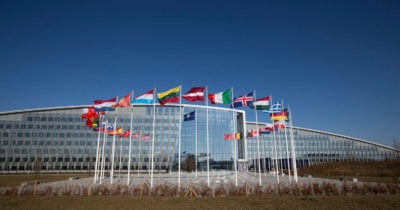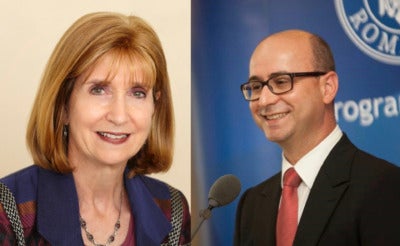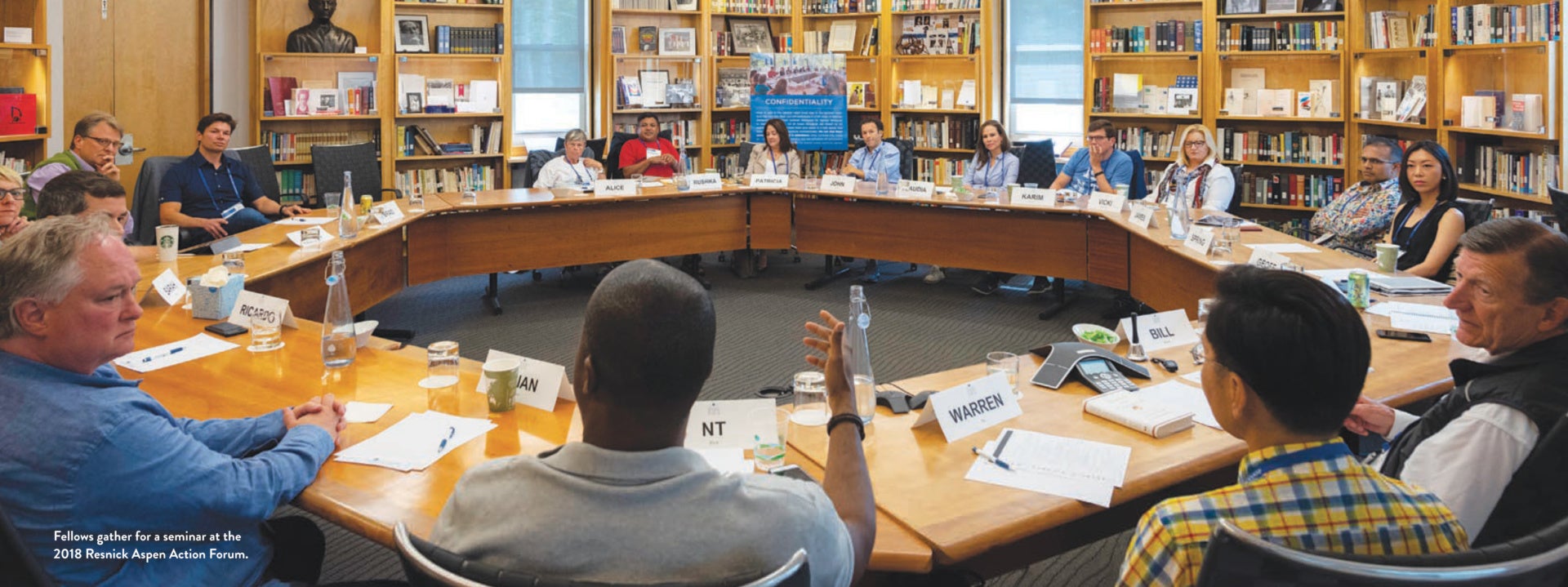Socrates Romania Transatlantic Seminar
On June 12-14, 2023, Aspen Institute Romania will organize the this Socrates Seminar, in partnership with the Aspen Institute Socrates Program, and supported by the Bucharest Office of the German Marshall Fund of the US.
The Seminar will be organized in Brussels, in cooperation with NATO and the European External Action Service, and powered by Aspen Brussels Hub. Over the 3 days of the Seminar, we will explore, in a transatlantic context, how the current strategic competition and the broadening definition of security are impacting the existing approaches in operationalizing societal and democratic resilience.
If you are interested in participating, please contact socrates@aspeninstitute.org.
The Future European and Global Architectures:
The Nexus between Resilience, Security & Innovation

We are now at pivotal time for European and transatlantic security. Today, the Euro-Atlantic area is no longer at peace. In fact, we are facing the gravest security crisis since the Second World War. The repercussions of this war reach far beyond Ukraine. Not least because Russia has unleashed food, energy, and cost of living crisis that threatens some of the world’s most vulnerable people. Beyond these immediate consequences, what happens in Ukraine will shape the global architecture for decades to come.
Strategic competition continues to rise. China and Russia are at the forefront of an authoritarian push back against the rules-based order. Autocracies tout their own systems as “efficient”, and they use a broad array of tools to amplify fissures and undermine confidence within democracies. When they cannot do so successfully, they use diplomatic, military, and other means of coercion.
In addition, new technologies are changing the nature of competition and conflict. Digital transformations are disrupting the foundations of diplomacy and defense. The scale and complexity of critical economic, environmental, technological, and human flows have increased dramatically, as has the dependency of many societies on such flows. Increased interconnectedness and digitalization can bring prosperity, but they can also generate vulnerabilities, as state and non-state actors seek to manipulate and exploit dependencies. Critical societal functions are increasingly susceptible to disturbances, interruptions, and shutdowns. Climate change and energy transitions pose new security dilemmas and amplify ongoing crises.
This Transatlantic Socrates Seminar will discuss ways to advance the development of a comprehensive and dynamic yet operational approach to resilience. As the current security crisis has driven historic developments in Europe and beyond, it is now increasing pressure to demonstrate that liberal democracy delivers, including security and defense. From military support to Ukraine and enhancing NATO’s defense and deterrence posture on the Eastern Flank, to addressing challenges related to bolstering European defense industry, redesigning defense procurement and ensuring the necessary stocks of ammunition – the seminar will seek to discuss how Europe and North America respond to these challenges, in the context of wider systemic transformations.
The Seminar will also seek to incentivize debates on optimal ways of pursuing an enhanced Euro-Atlantic resilience agenda, including by exploring necessary synergies between relevant institutions and societal stakeholders. As NATO – EU cooperation has been politically re-energized, strengthening resilience appears where both institutions could focus jointly on key areas such as critical infrastructures. At the same time, considering the current geostrategic context, the Seminar will also analyze how to sustain political, military and financial support for Ukraine, including with a view to the future recovery and reconstruction of the country.
The Seminar will further explore opportunities and challenges presented by new technologies, debating how the transatlantic community can improve its resilience and mobilize key resources in order to be competitive in this era of great security and technological challenges.
Furthermore, as part of the wider technology and democracy debate, the Seminar will address online disinformation and fake news and the pressure these tactics place on institutions and on individuals. Undertaken sometimes as part of fully-fledged influence campaigns, these tools aim at eroding trust in institutions such as NATO, the EU, and the governments of their member states and partner countries. This triggers a relevant ethical and societal debate with regard to the real impact of tech on our democracies.
Taking place in Brussels, a city serving as a focal point of both NATO and the EU, the seminar will provide a channel for informal and informed dialogue with key stakeholders on both sides of the Atlantic, in a multi-national environment. Around 30 participants – influential leaders of the Brussels’ international and diplomatic community, alongside members of the relevant Aspen Institute programmes will participate in a moderated high-level conversation, benefitting from high-level guest speakers from NATO and EU. In addition, the Seminar will provide participants the opportunity to become part of the unparalleled network of international Aspen Institutes, in Europe, US and around the world, and join the ever-growing network of fellows and alumni of the world-renowned Leadership programs of our network.

Moderated by Ambassador Paula Dobriansky, Senior Fellow in the Future of Diplomacy Project at Harvard Kennedy School’s Belfer Center for Science and International Affairs and is Vice Chair of the Scowcroft Center for Strategy and Security at the Atlantic Council, and Radu Puchiu, Co-Founder and CEO, H.appy Cities.
